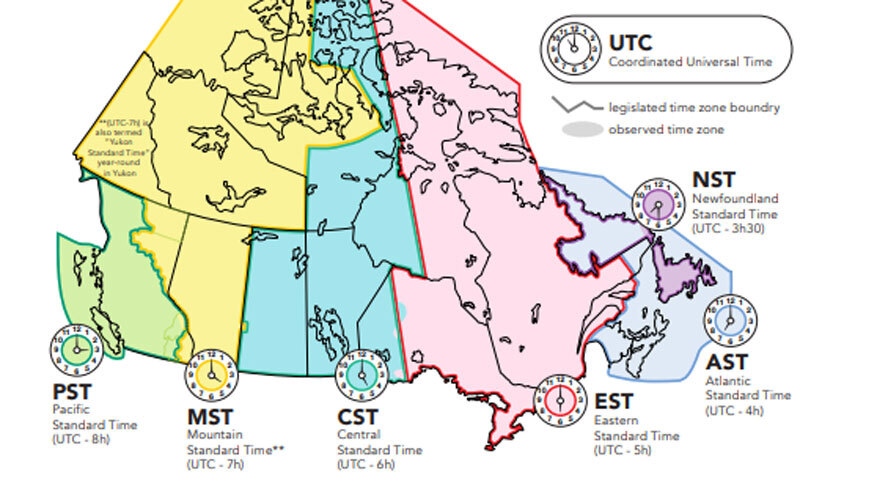Turn back the clocks: B.C. daylight saving time ends soon, seasonal time change may stop next year
Most British Columbians will be turning their clocks backwards this weekend as the province observes the seasonal daylight saving time practice.
At 2 a.m. on Sunday, Nov. 6, clocks will turn back one hour to mark the end of daylight saving time. The change will result in more daylight in the morning, but sunsets will occur earlier in the afternoon.
Outgoing B.C. Premier John Horgan had previously said that he hopes 2022 will be the last year that British Columbians will have to mark daylight saving time.
In 2019, the province passed legislation to stop changing clocks and permanently stay on daylight saving time, but only if the nearby states of Washington, Oregon and California all do the same.
Those three states have made moves to permanently stick to daylight saving time, but they require federal permission to do so.
In March of this year, a bill was passed by the U.S. Senate that would permanently end the seasonal time change across the country.
However, the bill, called the "Sunshine Protection Act," still needs to be passed by the House of Representatives and be signed by the president before it becomes law.
If the bill passes, daylight saving time would become the country’s permanent new standard time starting on Nov. 5, 2023.
In British Columbia, the legislation that was passed in 2019 means that the province could switch to permanent daylight saving time quickly after it’s made official in the U.S.
While most British Columbians observe the seasonal time change, some residents in the northeastern corner of the province, as well as in Creston, do not.
 Canada has six time zones with different variations of standard time throughout the year.
Canada has six time zones with different variations of standard time throughout the year.
CTVNews.ca Top Stories

Wrongfully convicted N.B. man has mixed feelings since exoneration
Robert Mailman, 76, was exonerated on Jan. 4 of a 1983 murder for which he and his friend Walter Gillespie served lengthy prison terms.
Can the Governor General do what Pierre Poilievre is asking? This expert says no
A historically difficult week for Prime Minister Justin Trudeau and his Liberal government ended with a renewed push from Conservative Leader Pierre Poilievre to topple this government – this time in the form a letter to the Governor General.
opinion Christmas movies for people who don't like Christmas movies
The holidays can bring up a whole gamut of emotions, not just love and goodwill. So CTV film critic Richard Crouse offers up a list of Christmas movies for people who might not enjoy traditional Christmas movies.
New York City police investigate death of woman found on fire in subway car
New York City Police on Sunday were seeking a man they believe is connected to the early morning death of a woman who was sleeping on a stationary subway train before she was intentionally lit on fire.
'I'm still thinking pinch me': lost puppy reunited with family after five years
After almost five years of searching and never giving up hope, the Tuffin family received the best Christmas gift they could have hoped for: being reunited with their long-lost puppy.
Pickup truck driver killed by police after driving through Texas mall and injuring 5
A pickup truck driver fleeing police careened through the doors of a JCPenney store in Texas and continued through a busy mall, injuring five people before he was fatally shot by officers, authorities said.
10 hospitalized after suspected carbon monoxide poisoning in Ottawa's east end
The Ottawa Police Service says ten people were taken to hospital, with one of them in life-threatening condition, after being exposed to suspected carbon monoxide in the neighbourhood of Vanier on Sunday morning.
Two U.S. Navy pilots shot down over Red Sea in apparent 'friendly fire' incident, U.S. military says
Two U.S. Navy pilots were shot down Sunday over the Red Sea in an apparent 'friendly fire' incident, the U.S military said, marking the most serious incident to threaten troops in over a year of America targeting Yemen's Houthi rebels.
Big splash: Halifax mermaid waves goodbye after 16 years
Halifax's Raina the Mermaid is closing her business after 16 years in the Maritimes.

































